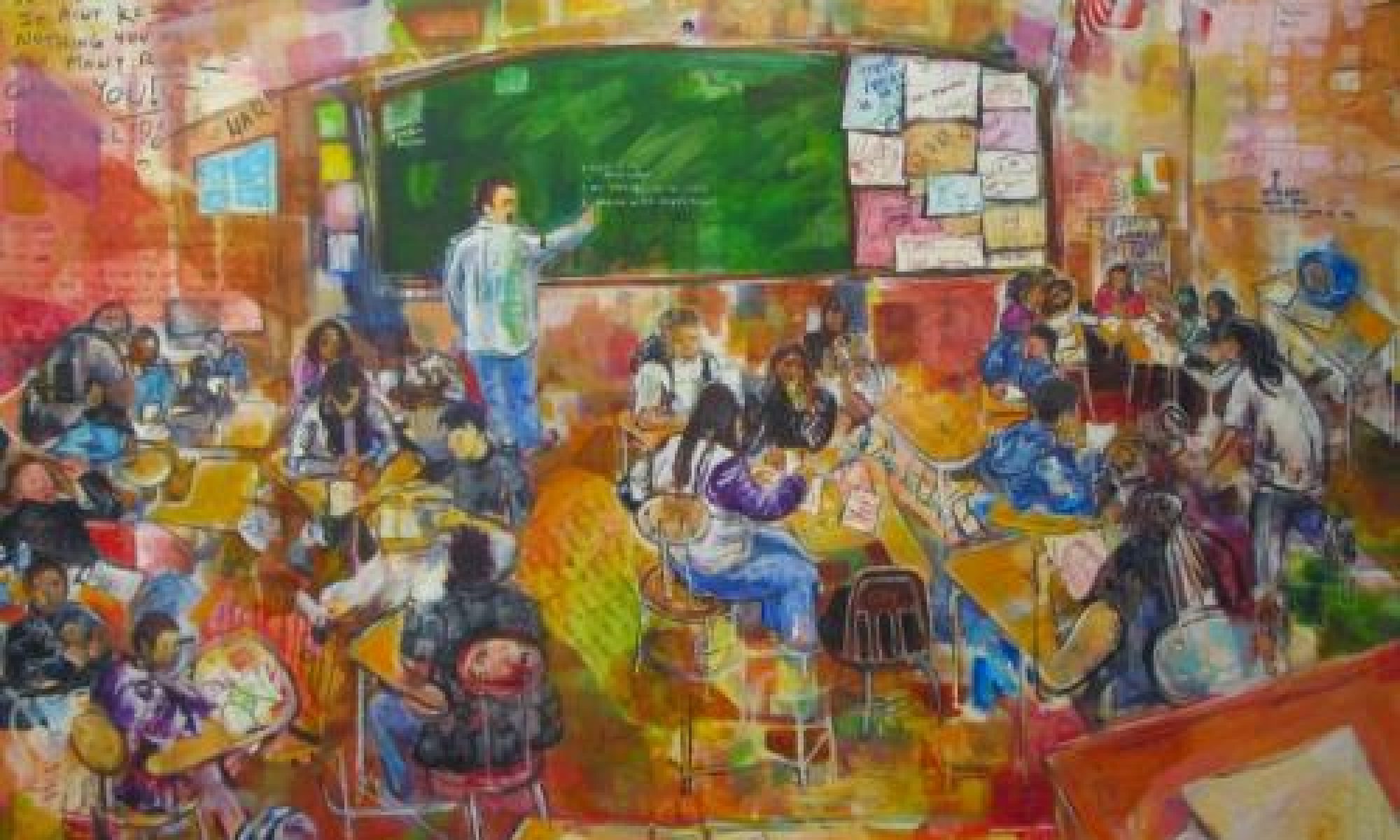Freedom Writers is a 2007 American drama film written and directed by Richard LaGravenese and starring Hilary Swank, Scott Glenn, Imelda Staunton, Patrick Dempsey and Mario. It is based on the book The Freedom Writers Diary by teacher Erin Gruwell and students who compiled the book out of real diary entries about their lives that they wrote in their English class at Woodrow Wilson Classical High School in Long Beach, California. The movie is also based on the DC program called City at Peace. The title of the movie and book is a play on the term “Freedom Riders”, referring to the multiracial civil rights activists who tested the U.S. Supreme Court decision ordering the desegregation of interstate buses in 1961.
The Emperor’s Club
The Emperor’s Club is a 2002 American drama film directed by Michael Hoffman and starring Kevin Kline. Based on Ethan Canin’s short story “The Palace Thief”, the film follows a prep school teacher and his students at a fictional boys’ prep school, St. Benedict’s Academy, near Washington, D.C.
After reading “Learning an L2 in a troubled world” you can check important issues for ESL teachers on the section PDFs, and visit my YouTube channel.
Dead Poets Society
Dead Poets Society is a 1989 American drama film directed by Peter Weir, written by Tom Schulman, and starring Robin Williams. Set in 1959 at the fictional elite conservative Vermont boarding school Welton Academy, it tells the story of an English teacher who inspires his students through his teaching of poetry with a different perspective of authentic knowledge and feelings.
The story takes place in 1959 at Welton Academy, a prestigious boarding school for boys in Vermont. It opens during an elaborate opening ceremony for a new school year, where we meet Todd Anderson, a new student entering his junior year. Transferring from another school, he is nervous to start at Welton as his older brother, Jeffrey, had attended before him and achieved excellent academic results.

Todd has always felt that his parents prefer Jeffrey; he is reminded of the pressure to live up to his legacy by the Dean. He meets his new roommate, Neil Perry, a friendly boy with a difficult relationship with his father, who has set out a detailed path for Neil’s life to go to Harvard and become a doctor.
Neil is not interested in this future but is too scared of his father to confront him. Todd also meets uptight overachiever Richard Cameron, rebellious rule-breaker Charlie Dalton, and romantic Knox Overstreet.
As classes start, the boys are surprised by their new English teacher, John Keating. Unlike the other strict and conformist teachers at the school, Keating is energetic, charismatic, and passionate. In his first lecture, he stands on his desk to teach the boys about different perspectives and talks about “Carpe Diem,” inviting the students to seize the day.
He wants to teach his students to live extraordinary, individual lives instead of simply following the rules. While the other teachers at the school are suspicious of his methods, Keating’s easygoing nature keeps him protected by the headmaster, Nolan.
After reading “Dead Poets Society” you can check important issues for ESL teachers on the section PDFs, and visit my YouTube channel.
Finding Forrester
Finding Forrester is about a sixteen-year-old Jamal Wallace plays basketball with his friends in New York City. A recluse, William Forrester, lives on the top floor of the building across from the court. The kids regularly notice him watching them. One of the boys dares Jamal to sneak into the apartment and retrieve an item. Jamal takes a letter opener only to be surprised by Forrester and inadvertently leaves his backpack behind.
ESL Conversation Lessons
PDF #151 – ESL Conversation Lessons

I have been involved in the ESL/TEFL/ESOL/EFL industry for over ten years now in one capacity or another. I started out as a TEFL teacher. I undertook a month long TEFL course in Latin America and started my teaching career in a private low paying language language school that could be described as a conveyor belt of students.
ESL Teacher Resume Examples
ESL Teachers work with students whose first language is not English and are responsible for helping them improve their vocabulary, reading comprehension and writing. A well-written resume example for ESL Teacher emphasizes duties like preparing students for exams, assisting immigrants, assigning papers, grading tests and monitoring progress. Based on the most successful resume samples, those seeking to secure this type of position should demonstrate instructional skills, patience, and sensitivity to cultural differences. Required education includes a Bachelor’s Degree in teaching English as a Second Language. Learn more about this topic by reading on JobHero.
#0002 – ESL Activities
After reading “Learning an L2 in a troubled world” you can check important issues for ESL teachers on the section PDFs, and visit my YouTube channel.
Going Beyond the Native Speaker
PDF #150 – Vivian Cook – Going Beyond the Native Speaker in Language Teaching – University of Essex
This article argues that language teaching would benefit by paying attention to the L2 user rather than concentrating primarily on the native speaker. It suggests ways in which language teaching can apply an L2 user model and exploit the students’ L1. Because L2 users differ from monolingual native speakers in their knowledge of their L2s and L1s and in some of their cognitive processes, they should be considered as speakers in their own right, not as approximations to monolingual native speakers. In the classroom, teachers can recognize this status by incorporating goals based on L2 users in the outside world, bringing L2 user situations and roles into the classroom, deliberately using the students’ L1 in teaching activities, and looking to descriptions of L2 users or L2 learners rather than descriptions of native speakers as a source of information. The main benefits of recognizing that L2 users are speakers in the own right, however, will come from students’ and
teachers’ having a positive image of L2 users rather than seeing them as failed native speakers.
Teach English in Algeria
General Overview
Arabic is the official language of Algeria, but to teach English in Algeria is a possibility. Another language used there is French, which is considered the lingua franca. It is spoken by a large percentage of the population, been used in the later years of high school.

Most of the population is Arab-Berber, practicing Islam and using the official languages of Arabic and Berber.
A continuing series of protests throughout the country started on 28 December 2010, inspired by similar protests across the Middle East and North Africa.
Teach English in Algeria – Politics
On 24 February 2011, the government lifted Algeria’s 19-year-old state of emergency. The government enacted legislation dealing with political parties, the electoral code, and the representation of women in elected bodies.
In April 2011, Bouteflika promised further constitutional and political reform. However, elections are routinely criticized by opposition groups as unfair. International human rights groups say that media censorship and harassment of political opponents continue.

On 2 April 2019, Bouteflika resigned from the presidency after mass protests against his candidacy for a fifth term in office.
The new Algerian authorities have an ambitious structural reform plan. They want to simplify regulations concerning companies, improve governance and transparency. Also, reform the investment legal framework and modernize the financial sector. President Tebboune has announced that Algeria will not turn to external borrowing. Or increase the money supply as a solution to deal with its financial needs amid the sharp drop in oil prices. In this context, the Algerian political system understood the need to diversify the Algerian economy and become less dependent on the oil and gas industry, which still accounts for 96% of the country’s exports.
Teach English in Algeria – Economy
Algeria’s climate is very diverse, and it is often refer to as the land of cherries and dates. Algeria is the 10th largest producer of oil and 4th largest of natural gas. These exports often find there way to Western Europe.
Algeria is a regional and middle power. It has the highest HDI of all non-island African countries. It is also one of the largest economies on the continent, in fact its industry is largely based on energy exports.
Algeria is classified as an upper middle income country by the World Bank. Algeria’s currency is the dinar (DZD). The economy remains dominated by the state. In recent years, the Algerian government has halted the privatization of state-owned industries. And imposed restrictions on imports and foreign involvement in its economy.
The situation in Algeria
This are some of the comments left by people on the ground:
“Teaching English in Algeria is very difficult. Teachers face many problems, such as large classes and class management. Absence of communication, lack of teaching materials. Not only is the atmosphere not appropriate to teach English, but the actual program does not satisfy the teaching aims and learners’ needs.”

“English teachers in Algeria need training. They need to improve their own level of English and learn more modern methods of teaching. Especially with regards to teaching large classes. The biggest problem is: the teachers’ mistaken belief that the problem is the system and the students’ behavior. The reason students misbehave is because their teachers are not good enough. Teaching is helping children to find out how they learn best, and to encourage individual growth. Ongoing professional teacher’s training together with advanced language learning/practice is the ONLY solution. This can be accomplished by the teachers themselves. They can organize workshops, invite English native speakers, teaching professionals to join them. And, visit this website!”
“I want to say that English teachers in Algeria are doing their best to improve teaching English but they are facing a lot. They don’t receive any training or scholarships. Other languages like French fare encouraged by France but English is left to teachers who were poorly educated. We need real training!”
How to Begin Teaching in Algeria
The largest country in Africa, Algeria is a country of UNESCO heritage sites, beautiful colonial architecture, ancient Roman ruins, gorgeous beaches and the Sahara desert. The sheer size of the country means that there are various different geographical regions in the country, from the coast to the mountains to the desert.
With such a diverse landscape, there are a range of activities that can be done to suit every traveller’s tastes: spend time in the capital city of Algiers, a quaint town with a touch of French colonialism; visit the city of Ouargla in the south of the desert, an ochre-coloured town known as ‘the golden key to the desert’; hike around the vast volcanic plateau of TassiliN’Ajjer; soak up the sun on the Turquoise Coast; tour the Sahara by camel; or visit the historic and holy town of Beni-Isguen. Whatever you fancy, rest assured you will find something to do in Algeria.
Arabic is the official language of Algeria and though French is considered a lingua franca and is spoken by a large percentage of the population and is even a medium of instruction in the later years of high school, it is not an official language.
More
Learn more about this topic by reading on TheTeflaAcademy.
After reading “Teach English in Algeria”, you can check important issues for ESL teachers on the section PDFs. And visit my channel by YouTube.
#0001 – Becoming an ESL teacher
After reading “Learning an L2 in a troubled world” you can check important issues for ESL teachers on the section PDFs, and visit my YouTube channel.
